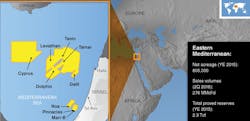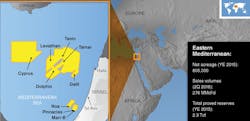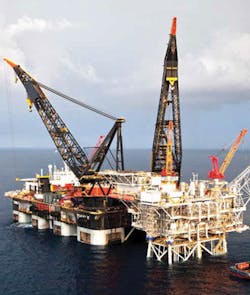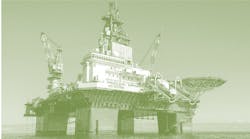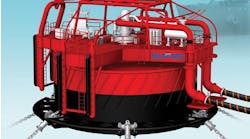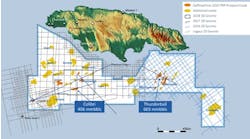Investment measures could spur export pipelines
Shiri Shaham
Simon Weintraub
Yigal Arnon & Co.
After years of deliberations, negotiations and amendments, the Israeli government recently adopted its final framework for regulation of the country’s burgeoning natural gas sector.
Israel has historically been a natural resource-poor country; however, over the last seven years, several major offshore natural gas reservoirs have been discovered in the country’s Exclusive Economic Zone (EEZ).
The four largest natural gas fields are largely owned by Noble Energy and the Delek Group, as offshore exploration by other right holders has mostly proven unsuccessful. As of June 2016, Delek and Noble together controlled 85% of the Leviathan field, 67.25% of the Tamar field, and 100% of both the Karish and Tanin fields.
TheTamar field, estimated to contain 10 tcf of gas, was discovered in 2009 and started production in April 2013. It now generates more than half of Israel’s domestic electricity production. The Leviathan field (estimated at 22 tcf) was discovered in 2010 and is close to starting development. Tanin and Karish are much smaller fields, both still to be developed.
In December 2014, Israel’s then Antitrust Commissioner decided to break up the dominant position held by Noble and Delek by cancelling a previously proposed arrangement that would have allowed the parties to retain their respective stakes in Leviathan and Tamar on the condition that they sell their shares in Tanin and Karish. The decision, however, resulted in the partners calling an immediate halt to development of Leviathan and triggered an intense deliberation process by the Israeli government, involving negotiations with Noble and Delek.
The aim of these discussions was to achieve a comprehensive, long-term arrangement which would on the one hand enable development of Israeli gas reservoirs, while on the other addressing the government’s concerns over a monopolistic position. This process took place throughout 2015 and involved public and parliamentary hearings. Finally, last December the Israeli government approved the Natural Gas Framework, which constitutes a comprehensive regulation of this issue.
Its main principles are:
Mandatory sale. Noble and Delek must sell all their rights in the small fields Tanin and Karish within a specified 14-month timeframe. Delek Group must sell all of its rights in Tamar while Noble Energy must sell at least 11% of its rights (limiting its maximum holdings in Tamar to 25%) by December 2021. The buyers must be unrelated third parties, to be approved by the Petroleum Commissioner in consultation with the Antitrust Commissioner.
Development and purchase commitments. The Leviathan leaseholders must purchase at least $1.5 billion in services and equipment for the Leviathan field’s development by the end of 2017 and the Tamar and Leviathan leaseholders must invest at least $500 million over eight years in pertinent Israeli goods and services, R&D, personnel and professional training.
Protections to customers. The Antitrust Commissioner made his approval conditional on a series of nine long-term agreements for the sale of gas from Tamar upon the granting of a two-year “window of opportunity” (likely during 2020-22) in which customers can reduce the quantities they have committed under current “take or pay” purchase agreements by up to 50%. In addition, with respect to these long-term agreements as well as nine additional short-term agreements, customers will be permitted to re-sell 15% of their contractually purchased quantity in secondary sales without pricing restrictions. Future purchasers will enjoy additional protections relating to pricing.
Export and tax.The Framework reinstates, with some modifications, a former government resolution regarding export restrictions which determines that a certain predetermined quantity of gas should be reserved for the local market. It also clarifies various points relating to the special taxation regime applicable for the sale of natural resources.
Stability clause.This provision requires the government to guarantee regulatory stability for 10 years. The clause in its original version included in the December 2015 Framework precluded the government from initiating new legislation that would change the main parameters of the Framework and current regulations, and required the government to oppose similar private legislation. These undertakings are conditional upon compliance by the leaseholders with their respective commitments under the Framework.
Judicial process
Following heated public discourse questioning the government’s policy considerations, various interested and political groups then challenged the Framework before the Supreme Court of Israel in its capacity as the High Court of Justice. Their appeal hinged on the legality of the government adopting this type of legislative-like agenda without primary legislation of the Knesset (Israeli parliament). On March 27 this year, following a review of each issue, the five Supreme Court judges determined that the Framework in its current form was not adopted properly, primarily on account of the legal status of its Stability Clause. They gave the government one year to resolve this issue.
The government promptly addressed the Court’s concerns and on May 22, announced an amended Framework with a more lenient Stability Clause. While this still refers to a 10-year long regulatory climate in the natural gas sector, intended to attract investment, it no longer guarantees nor does it mandate that the government will abstain from and oppose the enactment of any material changes. Rather, the new clause provides that the government will carefully consider future regulatory changes which relate to the “government take” from the leaseholders’ profits and other matters dealt with in the Framework when such changes could have a material adverse effect (in the eyes of a reasonable investor) on the leaseholders.
In the event of a material change of this kind, the government will undergo an evaluation process to explore and devise solutions to sustain the economic viability of the projects. This process must be concluded during a fixed and relatively short timetable and will take into account, inter alia, conformity with OECD and other worldwide standards; amounts already invested in the projects; and the existence of approved export agreements. So far this revised Framework has gone unchallenged although it cannot be ruled out that additional petitions will be submitted to the court.
Going forward
Recent events in Israel’s natural gas sector are encouraging for foreign investment in Israel. The recent deliberations and legal proceedings surrounding the Framework have showcased Israel’s vibrant democracy and strong rule of law. The High Court of Justice’s opinion outlines a clear separation of powers between Israel’s executive and legislative branches, effectuating political, legal, and regulatory certainty – all imperative for direct foreign investment.
From an investment perspective, the hope is that the Framework will serve as a stimulus in expediting development of Israel’s natural gas reserves and for promoting trade agreements with neighboring eastern Mediterranean countries. Such trade agreements can hopefully serve to foster geopolitical stability in the region. By way of example, the Leviathan partners and BG Group (now part of Shell) were reportedly negotiating a $30-billion deal to supply 105 bcm of gas over 15 years to BG’s liquefaction facility in Idku, northern Egypt. It has also been reported that Israel and Turkey are closer to a gas deal, which may include a potential pipeline through Turkey. While relations between the two states have been shaky of late, a trade agreement would advance a rapprochement.
Additionally, in February, the Tamar partners reportedly signed a letter of intent with private customers in Jordan to supply 1.8 bcm over 10 years, while in April, the Palestinian Investment Fund reportedly received a provisional permit and would soon publish tenders for constructing a $600-million power station to be supplied with natural gas from the Leviathan field. The power station is intended to provide 450 MW of electricity to West Bank residents.
The Framework is already spawning a boom in discussions on foreign investment and M&A activity in Israel. Under the Framework, Leviathan will need to be developed rapidly requiring the infusion of billions of dollars, most of which will likely be funded by sources from outside of Israel. Moreover, Israel’s government is set to shortly grant a new round of exploratory permits as the country’s EEZ continues to prove prospective for hydrocarbons. In January it was reported that a geological study of the Daniel gas field off the coast of Ashdod and near the Gaza Strip contains an estimated 8.9 tcf of natural gas.
We are optimistic that the major regulatory hurdles have now been overcome so that Israel can finally find its place as a global energy provider as well as a home base for safe investment opportunities.
The authors
Shiri Shaham and Simon Weintraub are partners in the Israeli law firm of Yigal Arnon & Co. specializing in banking and oil and gas. Most recently, they represented JP Morgan, CitiGroup and HSBC as the lead underwriters in the Delek Group $2-billion bond offering in connection with the development of the Tamar lease.
